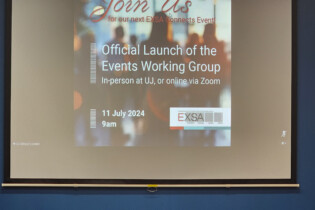Have you ever thought through the importance of putting a brand or logo-type identity to your events and meetings? Not only iconic projects but branding for the re-occurring series of training courses for example. Brand identity is just another way of building relationships with people so says major brand and design consultants WRAPPA in BizCommunity.
When it comes to branding, studies carried out by Relational Capital Group in collaboration with Princeton University into consumer behavior produced interesting findings many of which related to the event / meetings management industry.
When an event or meeting is conceptually designed and logistically well-planned the brand stirs up warm feelings of attendee loyalty.
Although there must always be features and benefits attached to the ROI (Return on Investment) and ROO (Return on Objectives), a brand may not tell all on the day and should be spelt out as a constant reminder.
Brand loyalty is driven by honesty and selflessness. Human interaction matches very closely with brand engagement. Trust is also a major factor. Will the event / meeting deliver each and every time as per the programme schedule? Presenter replacement at a less senior level than advertised can have serious brand consequences. Handing over a brand to another entity to use without predetermined methodology – can have even more serious brand consequences.
Building and maintaining brand loyalty takes time. Similar to the brand of the CMP Network South Africa, it is not an overnight wonder that the meetings industry views the manner in which the brand undertakes its promotions and information sharing. In 2004 the term CMP for the acronym Certified Meeting Professional was unknown. Due to consistent high standards in locating exam venues, promoting and supporting a meetings management programme the registered brand of the CMP Network in South Africa can boast a high-standard presence unknown five years ago.
Having laid bare some of the study findings on brands the potential industry individual is loyal to the people involved in the process and not the brand itself.
In a nutshell it means that if a brand has been built-up over a protracted period of time with a great deal of time, effort and finance it is important to protect the brand by ensuring it is registered in accordance with the laws of the land in the various classes applicable.
A good example is a brand such as the CMP Network South Africa which has generated tremendous goodwill and has a high ticket price tag in perceptions, communications and ongoing perseverance to raise event/meeting management standards in South Africa to a higher level.




